At the end of March the team of the Hellenic Ornithological Society (HOS) was in Messolonghi for a series of actions within the initiative Pelican Way of LIFE, financed by the LIFE Program of the European Commission.
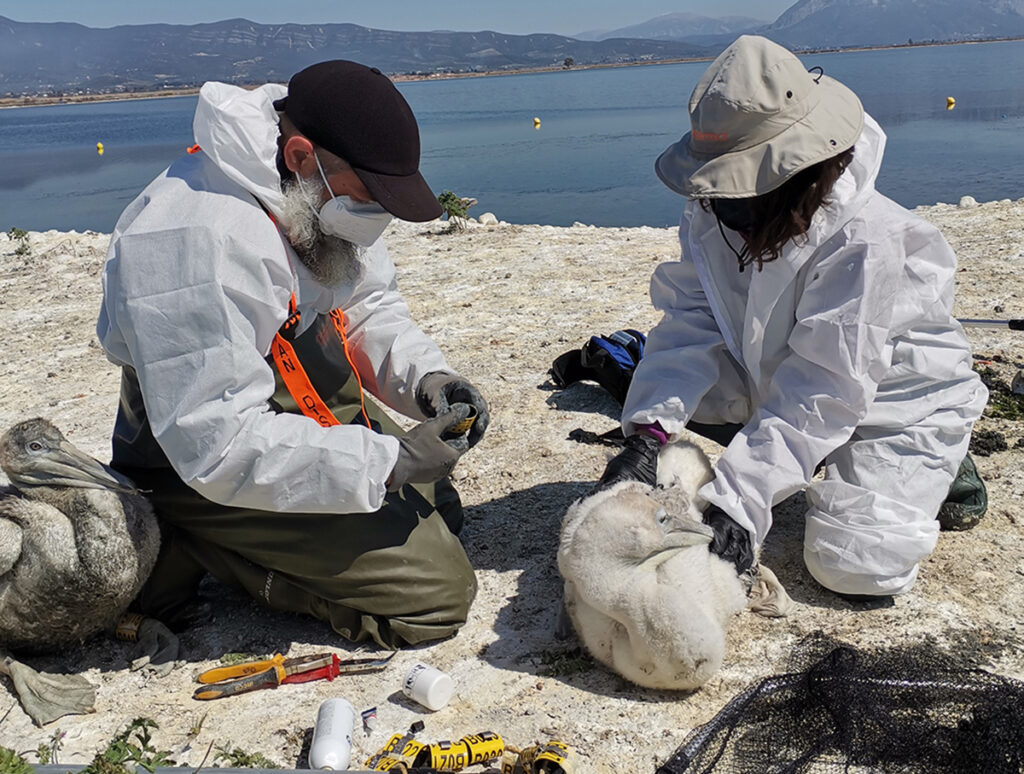
A seminar “Introduction to the Dalmatian Pelican of the Messolonghi Lagoon” was held in Messolonghi in collaboration with KEPEA, being the first training seminar for Messolonghi teachers after 2 years of COVID restrictions. The Dalmatian Pelican (Pelecanus crispus) is a perfect object for the training, as its presence close to humans and the magic it exerts on young and old gives an ideal opportunity to familiarize the educational community with the identification and monitoring of endangered bird species.
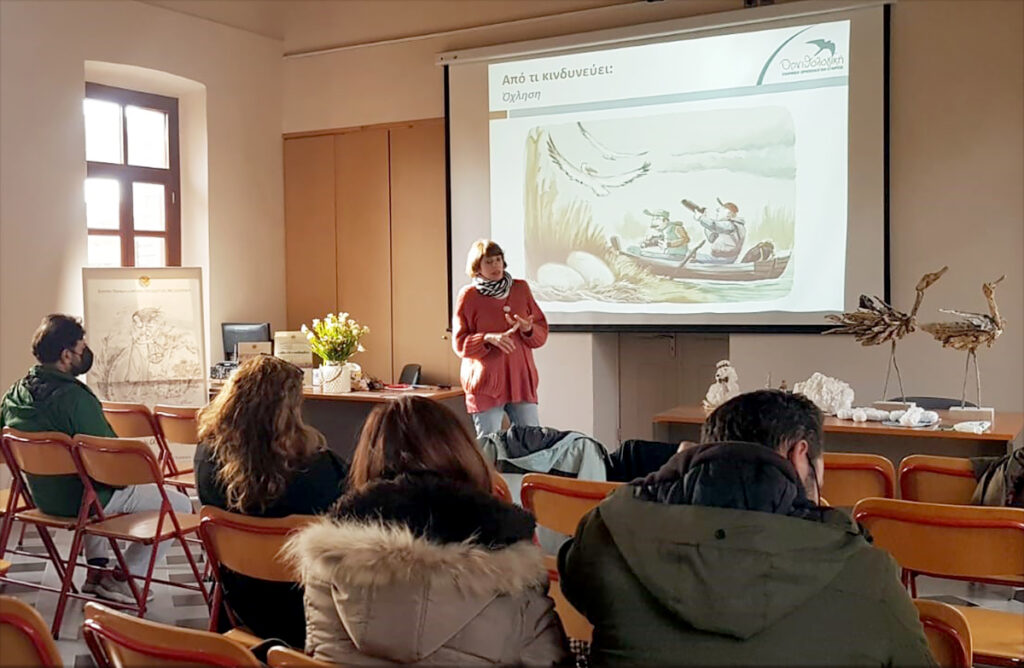
During the seminar, the participants had the opportunity to observe from a safe distance the Dalmatian Pelicans in their colony, as well as to work as a team in the field and understand first-hand the importance of its protection and the criticality of preserving the wetland ecosystems that host it.
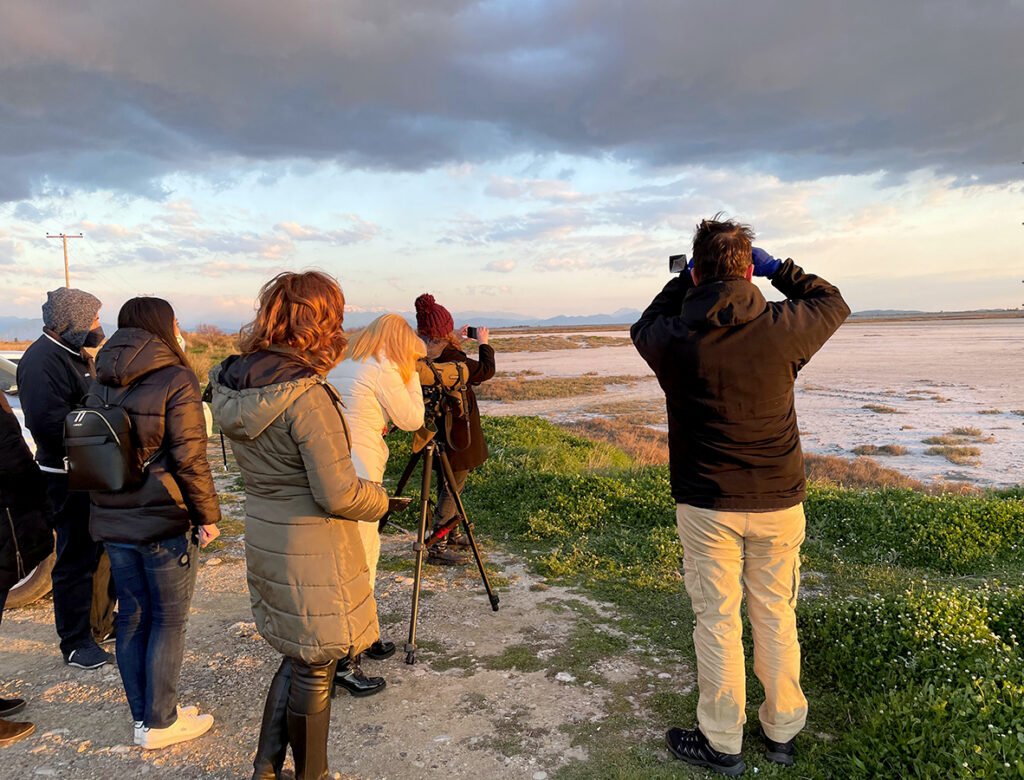
During the same week and in collaboration with the Management Unit of Messolonghi National Park and Protected Areas of Western Central Greece, the HOS team ringed 11 Dalmatian Pelican chicks in the Kleisova lagoon. The colony had been systematically monitored for possible outbreaks of avian influenza. Both during the preparation and during the ringing, all safety measures were fulfilled, while no suspicious bird flu was observed, as in other colonies of the species in the country.
The 11 Dalmatian Pelicans now wear a yellow ring from metal and plastic with unique codes, that are expected to give the ornithologists valuable information about the movements of the birds. A total of 32 Dalmatian Pelicans were ringed in the Messolonghi lagoon.
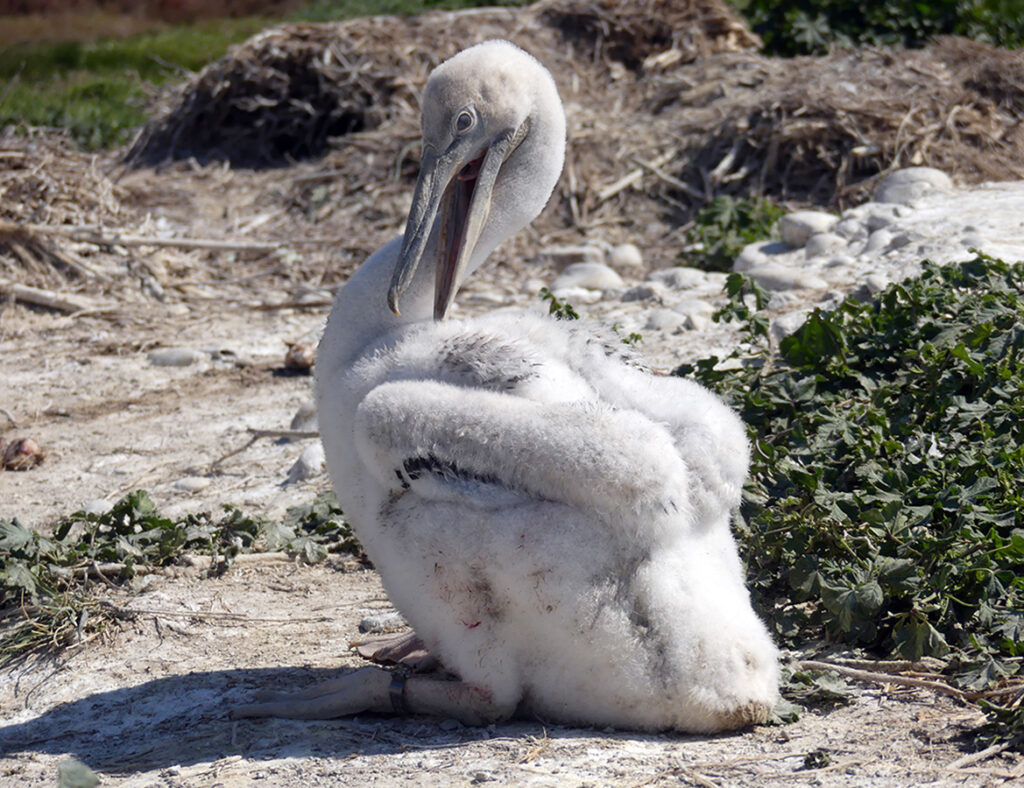
At the same time, the reproduction success of the Dalmatian Pelicans was recorded using Smiea (Unmanned Aircraft Systems). Photographing the colonies with SMIs is the most appropriate method for depicting the situation in a Pelicans’ colony, as they provide scientists with valuable data such as the number of active nests and the number of chicks in order to calculate the reproductive success of the colony.
In total, more than 150 Dalmatian Pelican nests were recorded in the area, a number that makes the Messolonghi lagoon one of the most important areas for the species in Greece. The flight was done with a special permit and carried out by specialized and trained personnel, so as not to disturb the nesting birds and other waterfowl in the area.
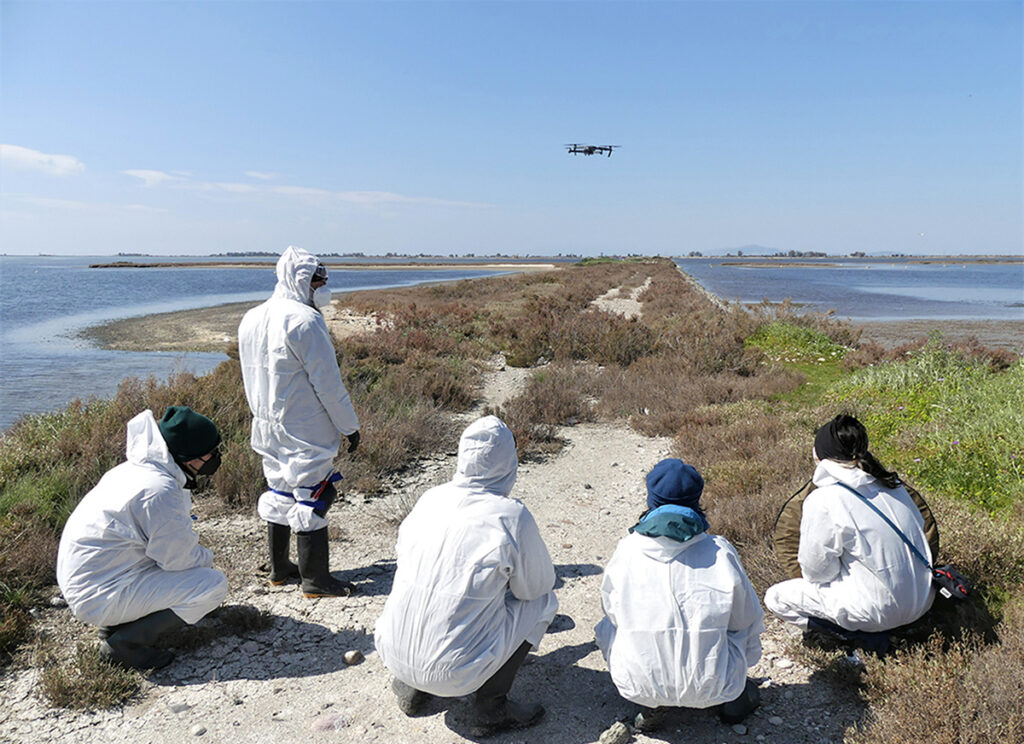
The educational material prepared for the teachers’ seminar will soon be available on the HOS and PWOL websites to be used by the schools in the areas where the impressive Dalmatian Pelican is present.
In case you notice ringed Dalmatian Pelicans, please inform the HOS team by sending the place where the bird was observed, as well as relevant photos:
- By e-mail at info@ornithologiki.gr
- Through the HOS page on Facebook
- By telephone 210 8228704 & 210 8227937